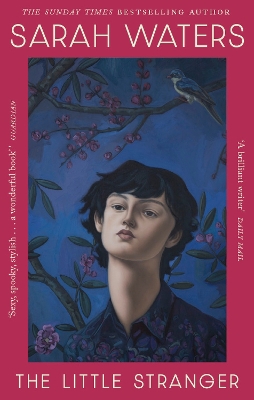Reviewed by brokentune on
The Little Stranger makes for great October / Halloween read - though, I will never know for sure whether it is a ghost that is haunting Hundreds Hall or something more sinister.
For obvious reasons - I don't want to spoil the book for anyone -, I'm not going to go into details of the plot, but will limit my thoughts to the feel of the book: It is CREEPY!
It is also smart. While much of the book is appealing to the belief in the supernatural, there are also plenty of references and discussions of psychological phenomena. In the end, however, readers have to make up their own minds about what happened. The Little Stranger engages on levels of belief and levels of reason, which made it hard to put down. To say nothing of the wonderfully drawn, though not always likable characters we encounter, like the Dr Faraday, the narrator. How reliable is his recollection of the events at Hundreds Hall?
And it is paying tribute to some other great atmospheric stories. There was one similarity with another book which stood out for me (simply because I'm a big fan of the novel that seems to have been alluded to).
If you compare the following two paragraphs, can you also see the similarities?
"I remembered a long approach to the house through neat rhododendron and laurel, but the park was now so overgrown and untended, my small car had to fight its way down the drive. When I broke free of the bushes at last and found myself on a sweep of lumpy gravel with the Hall directly ahead of me, I put on the brake, and gaped in dismay. The house was smaller than in memory, of course —not quite the mansion I’d been recalling— but I’d been expecting that. What horrified me were the signs of decay. Sections of the lovely weathered edgings seemed to have fallen completely away, so that the house’s uncertain Georgian outline was even more tentative than before . Ivy had spread, then patchily died, and hung like tangled rat’s-tail hair. The steps leading up to the broad front door were cracked, with weeds growing lushly up through the seams."
And this one:
"I turned again to the house, and though it stood inviolate, untouched, as though we ourselves had left but yesterday, I saw that the garden had obeyed the jungle law, even as the woods had done. The rhododendrons stood fifty feet high, twisted and entwined with bracken, and they had entered into alien marriage with a host of nameless shrubs, poor, bastard things that clung about their roots as though conscious of their spurious origin. A lilac had mated with a copper beech, and to bind them yet more closely to one another the malevolent ivy, always an enemy to grace, had thrown her tendrils about the pair and made them prisoners. Ivy held prior place in this lost garden, the long strands crept across the lawns, and soon would encroach upon the house itself."
Daphne DuMaurier - Rebecca
I'm by no means suggesting that The Little Stranger has to borrow from other works to achieve the feel of alienation, despair, obsession, envy, and remorse that had me hooked. Waters is brilliantly creating these in a different setting, the post-war 1940s, by alluding to the changes in social contexts as well as creating a mystery.
If there is one down-side to the reference of other atmospheric novels, it is that, because of these references, I was distracted by the plots of the other books and caught myself wondering on a few occasions whether The Little Stranger would eventually follow similar story lines.
Review originally posted on BookLikes: http://brokentune.booklikes.com/post/1015117/the-little-stranger
Reading updates
- Started reading
- 17 October, 2014: Finished reading
- 17 October, 2014: Reviewed
